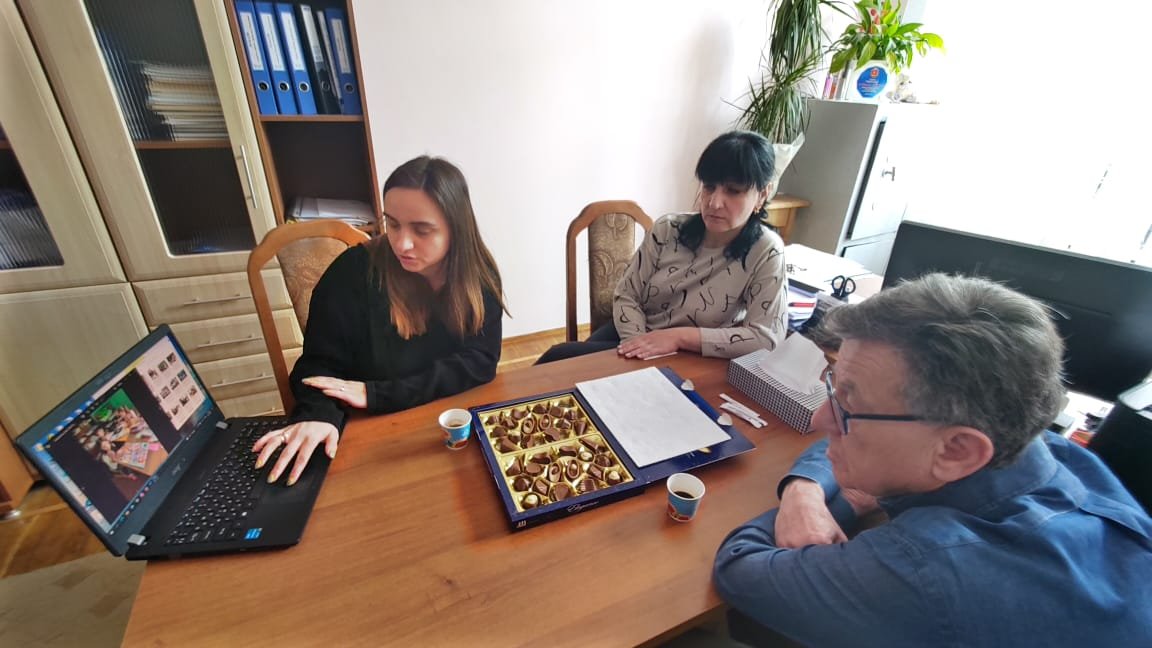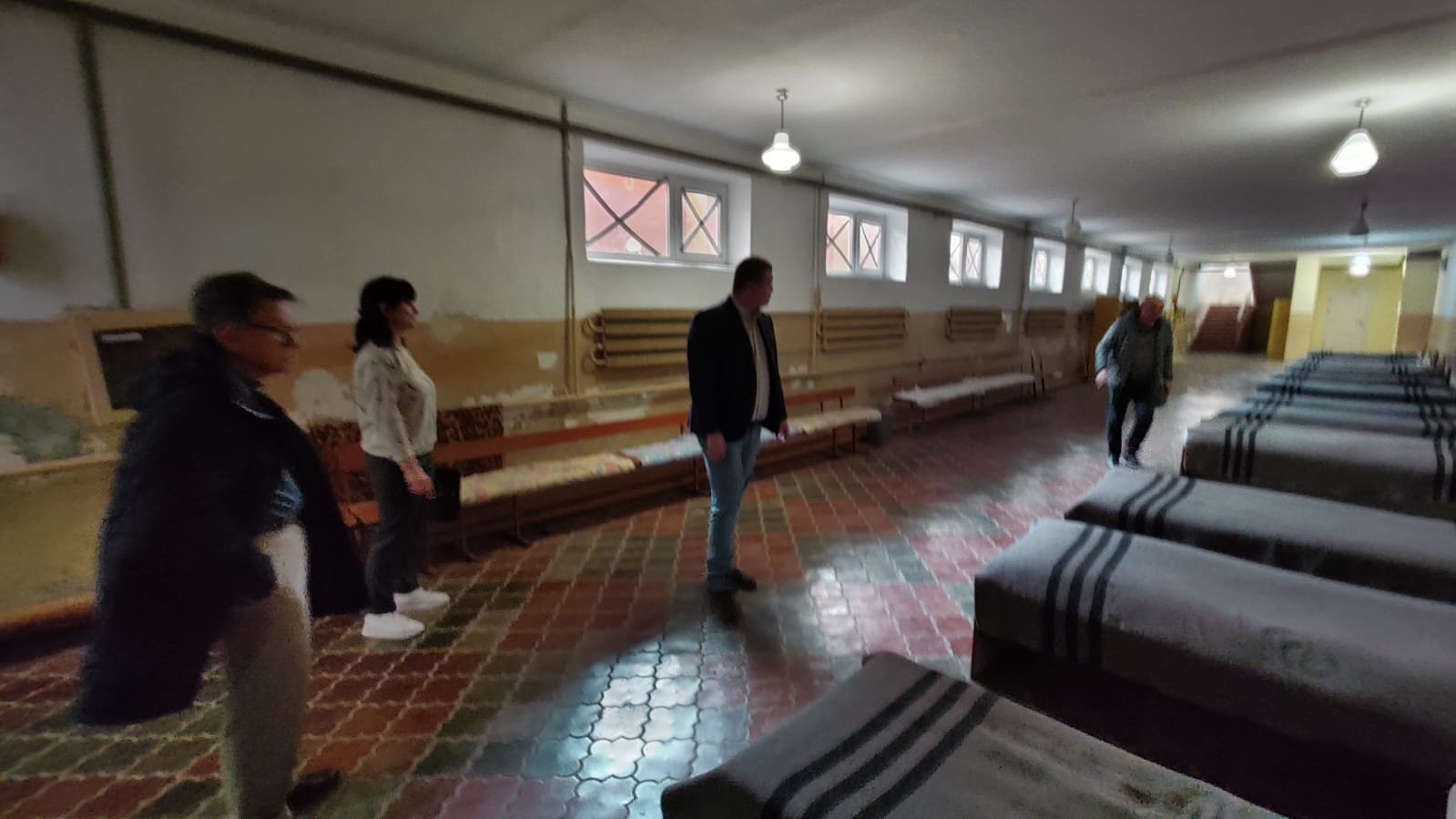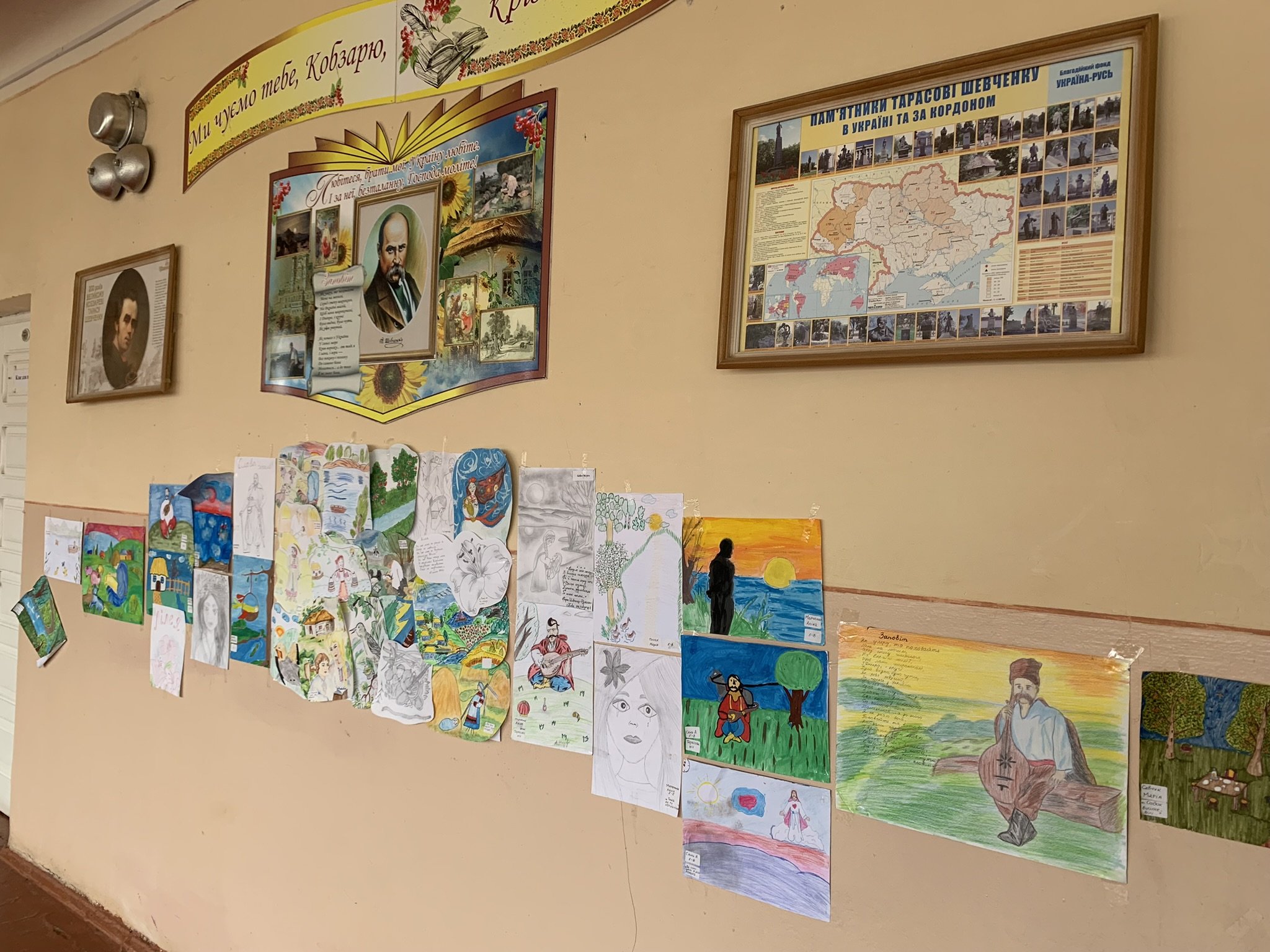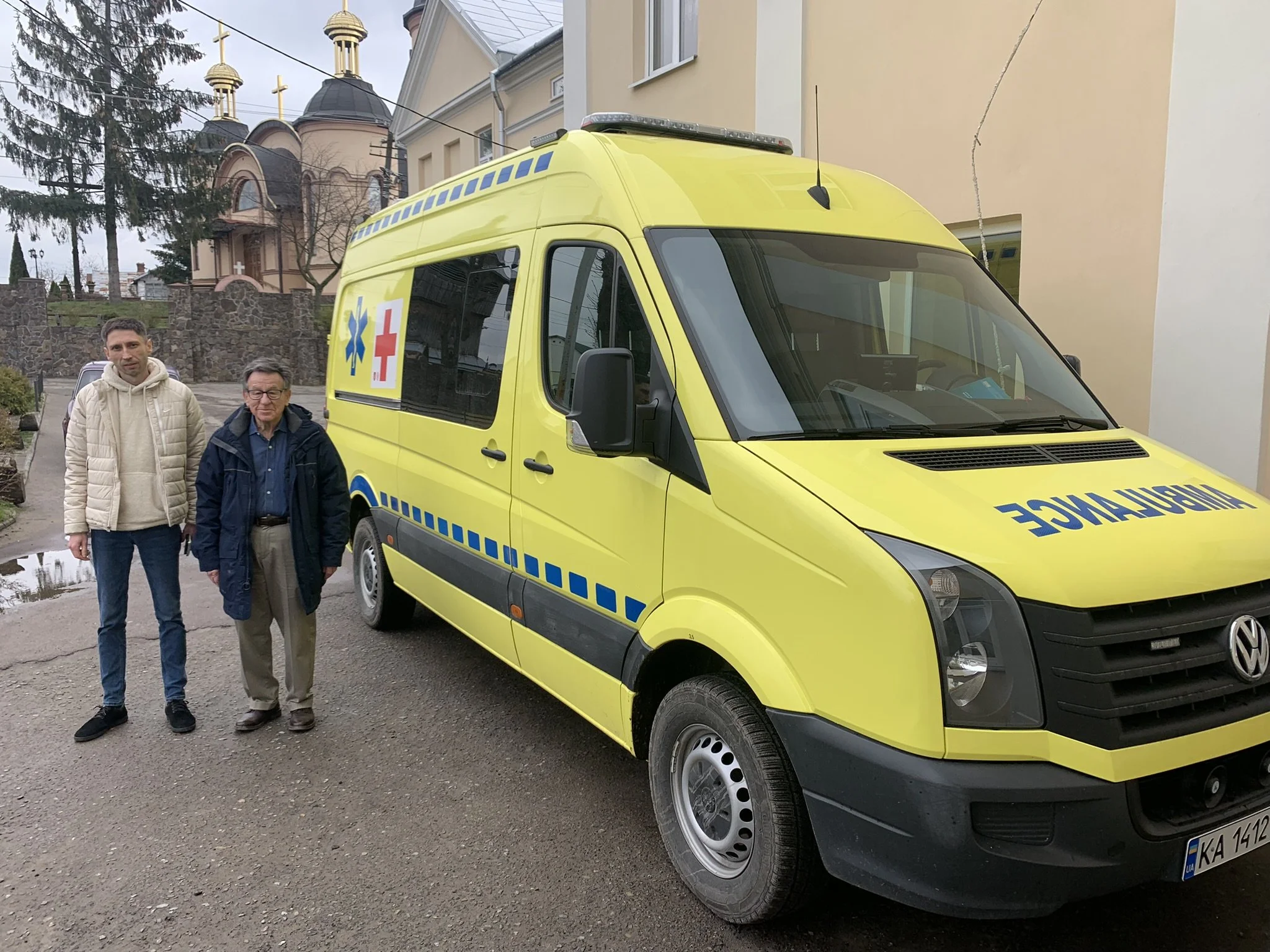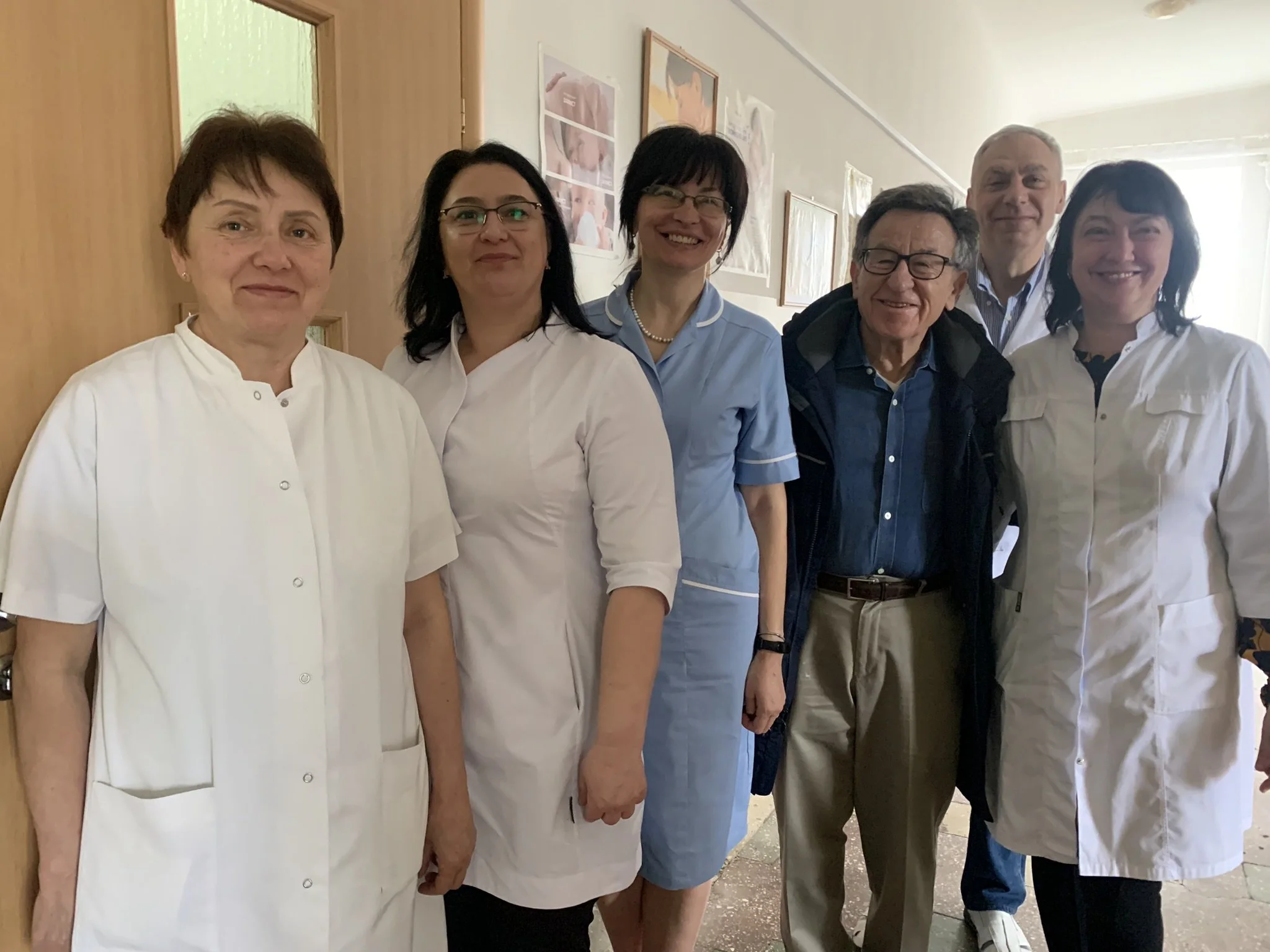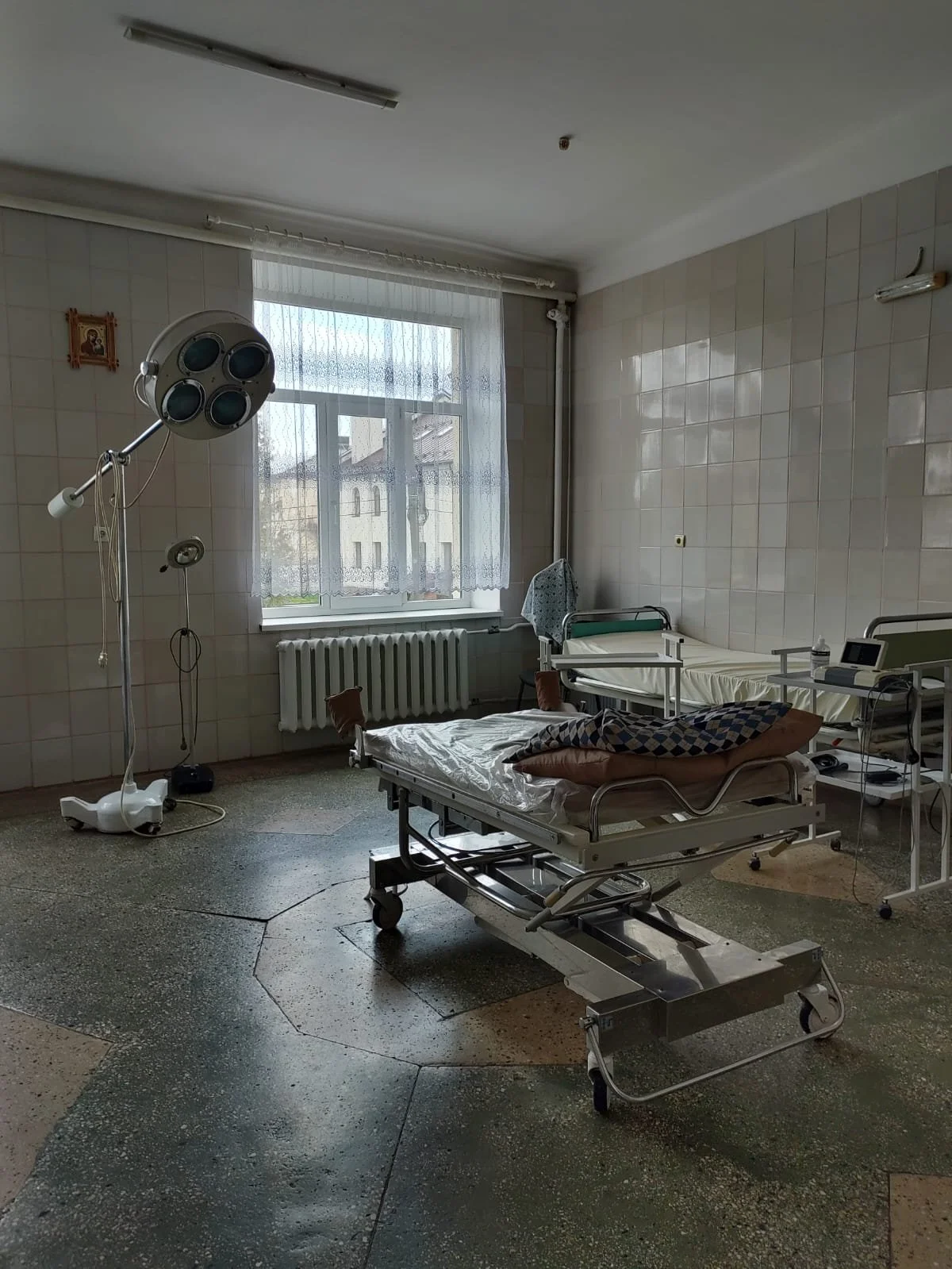NATAN Advisory Board Chair Visits Ukraine
Seeing the “fruits of NATAN’s labors” up close and personal
Alan Silberstein has been the Chair of NATAN’s American Advisory Board for over 5 years. This month Alan’s work with NATAN has brought two aspects of his life together — his family heritage in western Poland and his voluntary work. His visit to Poland was especially meaningful given it happened during the time of the Holocaust remembrance.
In Alan’s own words: After years of working with NATAN, I decided it was time to gain a better understanding of NATAN’s operations on the ground. I was able to put together a trip to Poland and take some time to go to Ukraine.
Visiting a school in Yavoriv. In the photo: a class of students, school officials, Iwanna, Alan Silberstein and Marcin Piotrowski, the founder and leader of NATAN’s partner Folkowisco.
I spent a day in Ukraine, and I met with different people and officials. The most significant for me was meeting and talking with Iwanna, a school psychologist, when I visited a school in Yavoriv. Her job is to intervene with the kids who have problems and their families. She spends a lot of time counseling teachers and other school officials, teaching them to be counselors. She was so grateful and appreciative of the training she received from NATAN. She expressed huge respect for NATAN volunteers who bring their professional backgrounds and experience. Iwanna said that immediately after the training, she and her fellow trainees would go and train others in Ukraine, and adapt what theу’ve learned to the local situation. One example, which is just something that I never would have thought of, but was apparently a very important change. The school has an area considered safe enough to be a bomb shelter. They took me down to see the shelter area. As they explained, as a result of NATAN’s advice, they fixed it up to be much nicer. They put in beds so that if students have to stay overnight, it is not as stressful as it could be. As they've learned, even when nothing happens, and the building doesn't fall down around them, kids who spend time in a bomb shelter freak out. They feel very stressed. And their recovery is never complete. A bomb shelter can feel a bit more like a living area. The more it can be like an ordinary room, the less burdensome it is to have to spend time there. This is a little bit of tangible advice that they carried out. They literally put NATAN training to work every day.
Iwanna said that they have many questions and they look forward to the next lessons, the next opportunity to meet with the top professionals and ask questions and solve problems. It really showed me that this is something they desperately need and appreciate. It was very gratifying.
Photos: School psychologist, tells NATAN how they implement practical advice after NATAN’s psychosocial training
Visiting the schools improvised bomb shelter, now equipped in beds after trainings with NATAN.
A wall in the school telling the history of the schools and connection to Ukrainian history and culture.
A visit of the JDC delegation to NATAN’s clinic at the refugee center in Przemysl Poland
In my role as a Chair of the American Board, I am involved in NATAN’s public relations in the USA. NATAN is built from volunteers like us, and many of us believe that if you have a good purpose and cause why wouldn't that raise awareness and donations. There’s an immense deep integrity around NATAN, around the mission, around being ready to respond to a disaster, around being well trained and making sure that everybody knows the values and respects the people they're serving and their culture. Over the last several years that we've worked together on this, I've absorbed a lot of the value system of NATAN.
Our values together with our effectiveness in the field, generate enormous respect from the other NGOs, international and local, with which we collaborate. These values also lead to financial support – for many years from the JDC – the Joint – they have always come through for NATAN, and now from many more institutions.
Teaming up with Folkowisko
Alan Silberstein with Marcin Piotrowski, the founder and leader of NATAN’s partner Stowarzyszenie Folkowisko
I spent the day in Ukraine alongside Marcin Piotrowski, the founder and leader of our partner organization Folkowisko. Just a year ago Folkowisko was a wonderful cultural organization, who had held for several years a music festival, very dedicated to building mutual respect and understanding among the different ethnic groups living around the border in both Ukraine and Poland. To put together such a festival is not a small logistical feat. It's a big deal and this is how they're so good. They still do the cultural part, but they have transformed themselves into an extraordinary and excellent international humanitarian aid organization. They build partnerships with the municipalities in the border region, and they're bringing resources and making a huge difference. Much of it they do with NATAN.
It's remarkable to see the transformation and growth of Folkowisko to become an international development organization. And they've done so many wonderful things which I got to learn about. Together we visited schools and a hospital, and I got to see the conditions on the ground. The area I saw could use a lot of help. It is under a huge stress.
There's a large number of internally displaced people who lost their homes and are lost in terms of what happens next. But the truth is that the entire population is stressed out.
Here is one of NATAN’s dilemmas. In the beginning of the war, with all the pictures of refugees flowing across the border, and the bombings, there was a great deal of public interest and donations poured in. Eventually people get tired and don't want to see the same news every day. They lose interest.
Everybody understands an injury or sudden illness or needing to get new drugs after refugees left their heart or diabetes drugs behind before they got across the border. What we're doing today with the Ukrainians is much harder to explain. It is much harder to put a tangible value on psychosocial counseling and working with trauma resilience.
I was there to learn. And I believe that my learning will translate into something good for NATAN. But I got as much or more out of it than anybody else.


